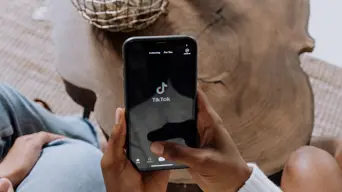TikTok teams up with IEC to ban election misinformation: 'Don't be part of the problem'
Here are four tips to help you recognise fake news.

Photo: Pexels/cottonbro studio
Clarence Ford interviews Fortune Mgwili-Sibanda, Government Relations and Public Policy Director at TikTok SA.
Listen below.
Many have dubbed 2024 the 'year of elections' and with good reason, as no less than 64 countries are either heading to or have already had elections.
Leading up to the 29 May elections, the Independent Electoral Commission (IEC) is collaborating with Media Monitoring Africa and various social media platforms such as Meta, TikTok, and Google to combat disinformation ahead of the elections.
Mgwili-Sibanda emphasises the creation of an election hub to highlight factual information, aiding voters in making informed decisions.
Recognising TikTok's limitations in delivering breaking news, he stresses the importance of users conducting their own research to ensure the veracity of information consumed and, more crucially, to avoid sharing and perpetuating fake news.
Four tips to help you recognise fake news:
- Check the facts
- Identify hidden intentions
- Analyse sources
- Stay vigilant of AI-generated misinformation
RELATED: First 'AI election' looms: Vigilance urged against misinformation
"The one big appeal about TikTok is authenticity, you can be yourself."
- Fortune Mgwili-Sibanda, Government Relations and Public Policy Director – TikTok SA
"Not necessarily everything that you hear from every Tom, Dick and Jane is the truth."
- Fortune Mgwili-Sibanda, Government Relations and Public Policy Director – TikTok SA
"Do not be part of the problem in sharing this information."
- Fortune Mgwili-Sibanda, Government Relations and Public Policy Director – TikTok SA
Scroll up to the audio player to listen to the interview.